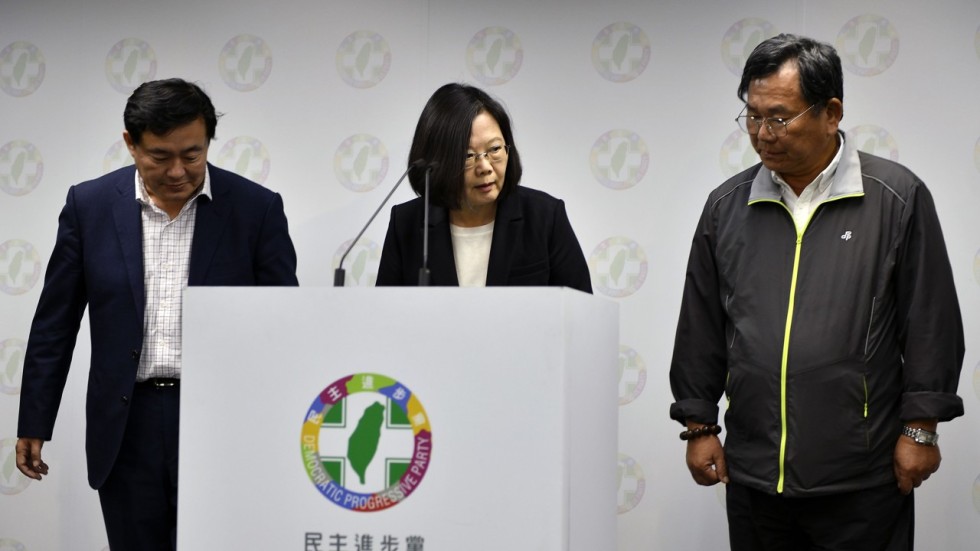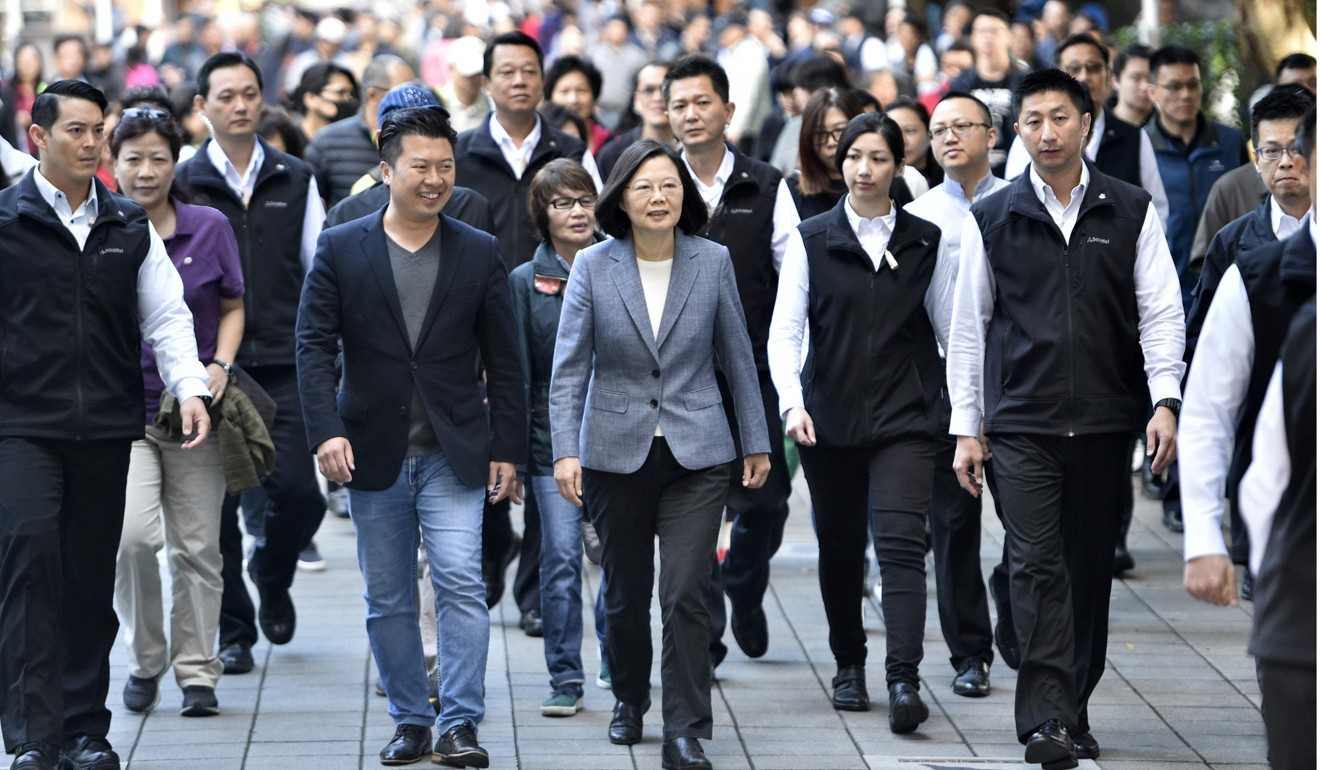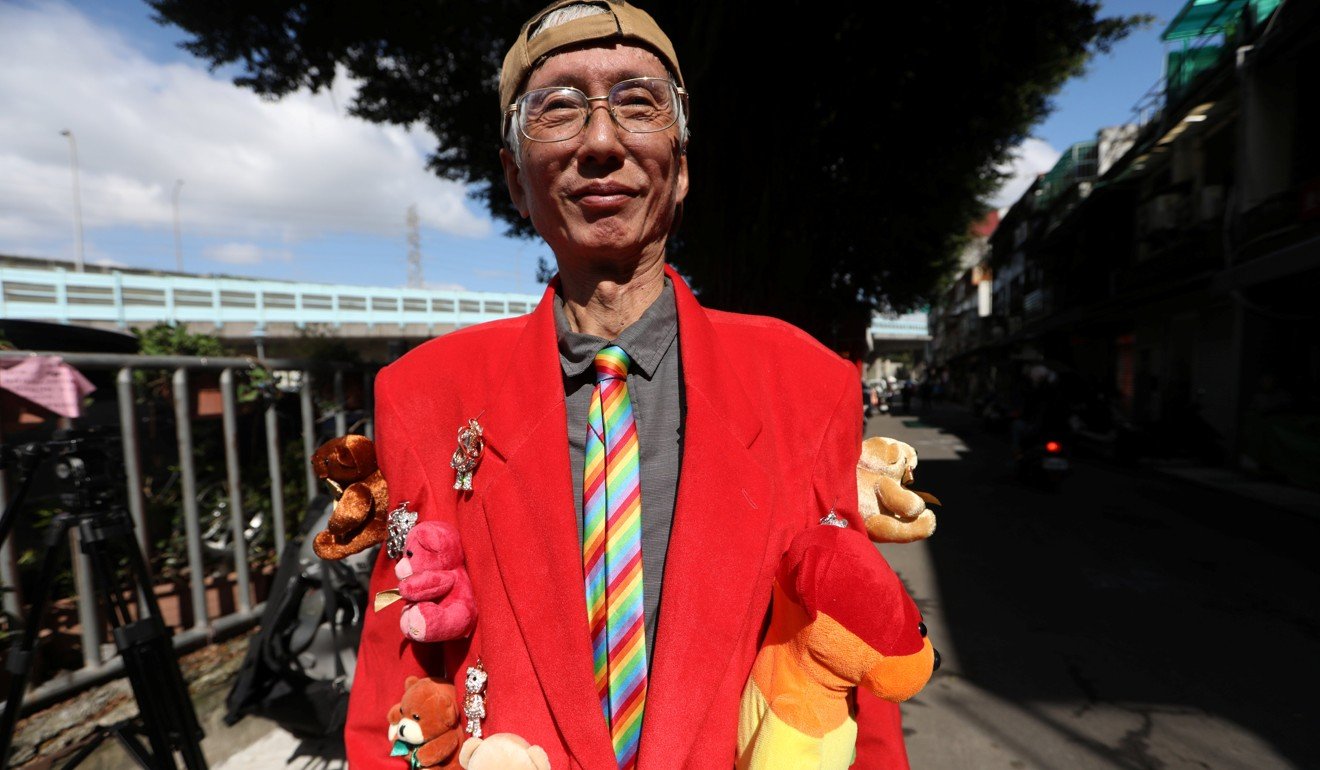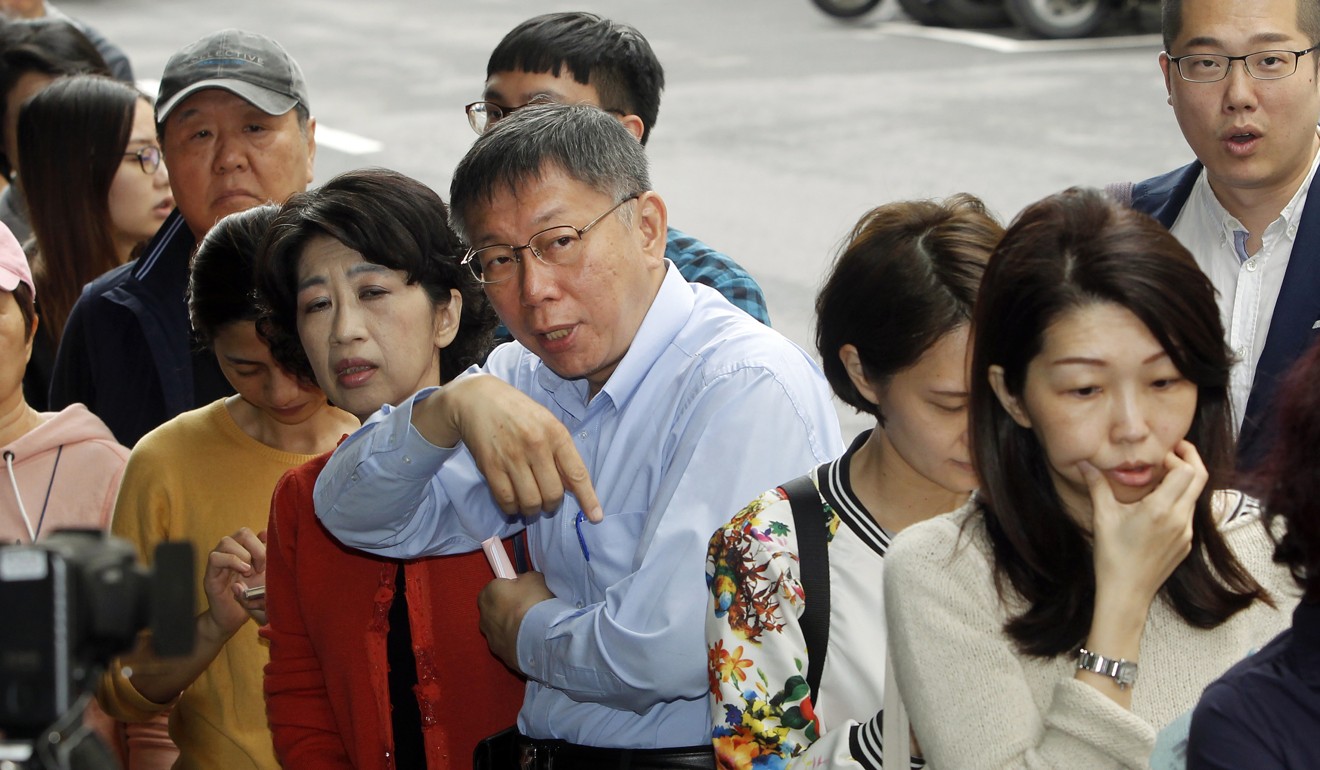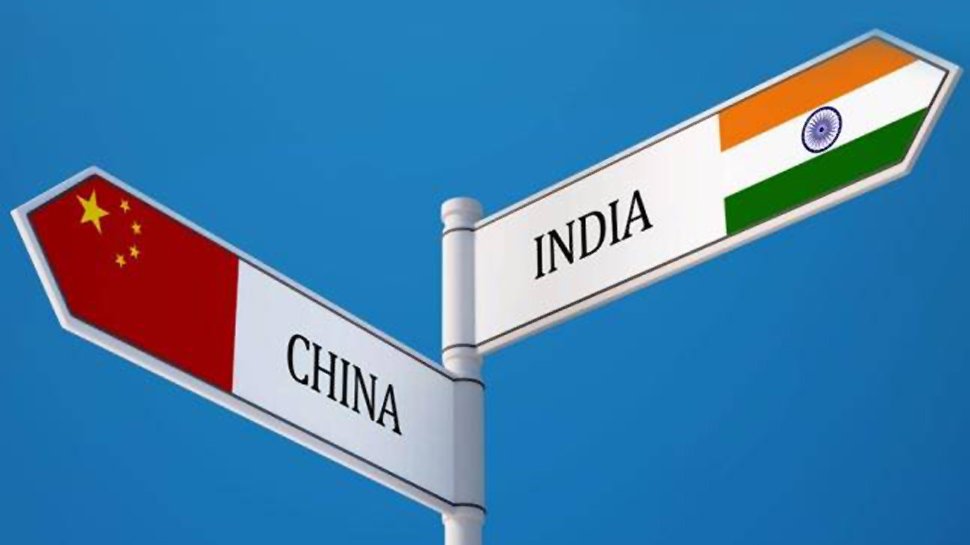Democratic Progressive Party suffers big defeat in Taiwan elections; Tsai Ing-wen resigns as chairwoman
- Independence-leaning party loses seven of 13 cities and counties in Saturday’s polls
- Premier William Lai also offers his resignation to Tsai and says he will lead cabinet to resign en masse
PUBLISHED : Saturday, 24 November, 2018, 5:33pm
UPDATED : Saturday, 24 November, 2018, 9:57pm
The independence-leaning party lost seven of the 13 cities and counties in Saturday’s polls, including two special municipalities, as a disgruntled electorate handed it a vote of no confidence. Analysts described the result as a turnaround in political influence, four years on from the opposition Kuomintang (KMT) suffering a similar election setback.
Tsai had been facing mounting pressure from Beijing and a domestic backlash over the economy.
The KMT swept to a landslide victory, winning not only the southern city of Kaohsiung, but also its former political territory Taichung in central Taiwan, allowing it to increase its influence to at least three of the six special municipalities and a number of other local cities and counties, with the full result yet to be declared.
Kaohsiung had been a power base for pro-independence DPP for two decades.
Menwhile, Ko Wen-je, the independent mayor of the island’s capital Taipei, appeared on track to win a second term.
A grim-faced Tsai announced her resignation at a hastily called news conference in Taipei.
“I hereby announce my resignation as chairwoman and shoulder responsibility,” she said. “We have learned a lesson and must reflect on ourselves as, obviously, voters have a higher expectation of us.”
In a Facebook post, Premier William Lai said he also had offered his resignation to Tsai and would lead the cabinet to resign en masse. Tsai later said she would ask him to stay on.
The southern city of Kaohsiung was a key battleground with the mainland-friendly KMT candidate Han Kuo-yu winning the seat from the DPP’s Chen Chi-mai.
Han was almost unknown a few months ago, but his grass-roots campaign – including a pledge to make Kaohsiung great again – attracted strong support from voters eager for change and better living standards after two decades of DPP control.
Han has pledged to improve the local economy so that people do not have to leave their families to find work.
Voter turnout in the local elections looked to be one of the highest recorded as millions of voters went to the polls.
Long queues of voters, some stretching more than a kilometre, formed outside many of the 15,000 polling stations after they opened at 8am.
In some places they faced a wait of up to two hours before they were able to cast their ballots in the unprecedented 9-in1 elections – nine elections on the same day – and 10 referendums.
By 4pm, the official closing time, long lines were still reported outside many polling stations, although electoral law states that those who had arrived before then would still be able to cast their ballots.
In the first fatality ever reported during a Taiwanese election, one 61-year-old woman died after collapsing outside a polling station in Kaohsiung, according to the Central News Agency.
Observers said the high turnout was due mainly to the fierce fight between the opposition Kuomintang and the DPP and the controversies surrounding some of the referendums – especially the ones on same-sex marriage.
“The heated debates between the pro and anti-gay groups over marriage equality and other related issues have also boosted the turnout as the two camps have mobilised hundreds of thousands of supporters,” said Liao Daichi, a professor of political science at National Sun Yat-sen University in Kaohsiung.
Beijing, which sees Taiwan as a breakaway province and has never renounced the use of force to reclaim it, has suspended exchanges with the island since Tsai’s election in 2016. It has also taken an increasingly confrontational stance by staging a series of war games around the island while poaching five of its remaining diplomatic allies.
On the other hand, pro-independence supporters have been disappointed with what they regard as too mild a cross-strait policy and her unwillingness to change the island’s official name from the Republic of China to Taiwan.
Many people complained about the slow voting process, due mainly to the complicated procedure which required them to first complete the local government ballots before moving on to the 10 referendum questions.
“The operation is too slow, obviously stalled by the holding of the referendum at the same time,” said Ko, who had to wait for more than an hour.
He said Taiwan was a global information and technology giant, but the ballot procedure was worse than that found in many third world countries.
The most controversial referendums of the day concerned LGBT issues, a debate that has proved hugely divisive.
The ballot included three measures put forward by the conservative group Happiness of the Next Generation Alliance, which says its supports gay rights by wants seek to block efforts to introduce same-sex marriage and wants to ban lessons to teach primary and junior high school pupils about same-sex relationships.
But gay rights groups have sought to counter this by asking voters to support changes to the civil code that would redefine marriage and include same-sex relations in school sex education classes.
A 30-year-old man surnamed Wang said he did not want young children to learn about gay marriage in school, since “being too young means lacking in proper judgment”.
But one supporter of same-sex marriage said she hoped society would become more tolerant.
“Older people in Taiwan are pretty conservative and have lots of prejudice against LGBT people, I hope they can be treated as normal human beings,” she said.
Another closely watched referendum is one that asks voters to choose whether its international sports teams should ditch their current designation as Chinese-Taipei and compete as Taiwan instead.
Not only would that move anger Beijing, but the International Olympic Committee has warned that the island could risk losing its right to compete if it seeks to change its name.
A woman surnamed Wang, 27, said she voted to keep the current name of Chinese Taipei. “Once the island is stripped off the chance to join the Olympics, the athletes’ years-long training will be wasted, and their careers will be ruined. We cannot afford to destroy other people’s lives in such an easy vote,” she said.
But Chih disagreed. “I know changing the name will endanger other people’s careers, but I still think we need a try. How can we know that the world will listen to our voice if we do not even cast our votes?”
The referendum results are expected to be announced about 2am on Sunday.

